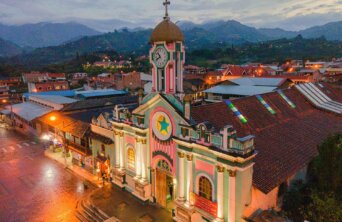- About
- Topics
- Picks
- Audio
- Story
- In-Depth
- Opinion
- News
- Donate
- Signup for our newsletterOur Editors' Best Picks.Send
Read, Debate: Engage.
| topic: | Election |
|---|---|
| located: | Ecuador |
| editor: | Ellen Nemitz |
Ecuador is the most recent country in Latin America to face deep political instability. The script is quite similar to the one witnessed by its neighbour Peru months earlier: President Guillermo Lasso, who had a legitimate ongoing term from 2021 to 2025, was charged on an impeachment trial for alleged corruption. Before any further discussions, he then proceeded to disband the Congress and put his own term to an early end, a process known as cross-death. The difference here, which makes the story much less turbulent, at least, is that Lasso immediately called for new elections, to be held on 20 August, and will keep his mandate until then - with a series of important measures to be announced soon.
On 17 May, the day on which the decision was announced, Lasso affirmed that it was "the best decision to give a constitutional solution to the political crisis and internal commotion," allowing Ecuador to decide its own future and to have "a new political and social pact." Moreover, the president reaffirmed the importance of democracy and of people to correctly use the power of their vote as "the most valuable tool you have to guide the country towards a better destiny."
It seems much more likely, though, that Lasso resorted to the resignation as a way to avoid the political damage a trial could probably cause. According to some analyses, Lasso had indeed failed to maintain Ecuador's financial and social stability, leading to high rates of inflation and violence, for instance, as well as a large flow of migration. He was thus dealing with a significant disapproval rate.
Eyeing the future of the country, the Confederation of Indigenous Nationalities of Ecuador announced the indigenous leader Leonidas Iza Salazar as a pre-candidate to the new election process. "Our representation is not individual, it is collective," Salazar affirmed on a video in which also credited the efforts not to himself, but the group as a whole, and advocated for the population to pursue the popular path to overcome the challenges the country now faces.
Another important nomination for the dispute is Yaku Pérez Guartambel, a politician and environmental activist with a long history in politics. Former prefect of Azuay province, Yaku Pérez came third place in the 2021 elections, but with a close vote share to Lasso, who later won the run-off - 19.39 versus 19.74 percent. Two years later, the indigenous leader celebrated the news coming from his former opponent and convened the people to vote for a candidate committed to the poorest and the environment, with no "hate or grudge".
For Ecuador, this sad episode of its history must be transformed into an opportunity to create a new chapter: a transition government (ordinary elections in 2025 are maintained) truly built based on social and ecological fairness. Although previous examples in Latin America may prove that no politician nor administration can be considered immune from failure, hope for the future is a forever boost for continuous fight.
Image by Kiyoshi

